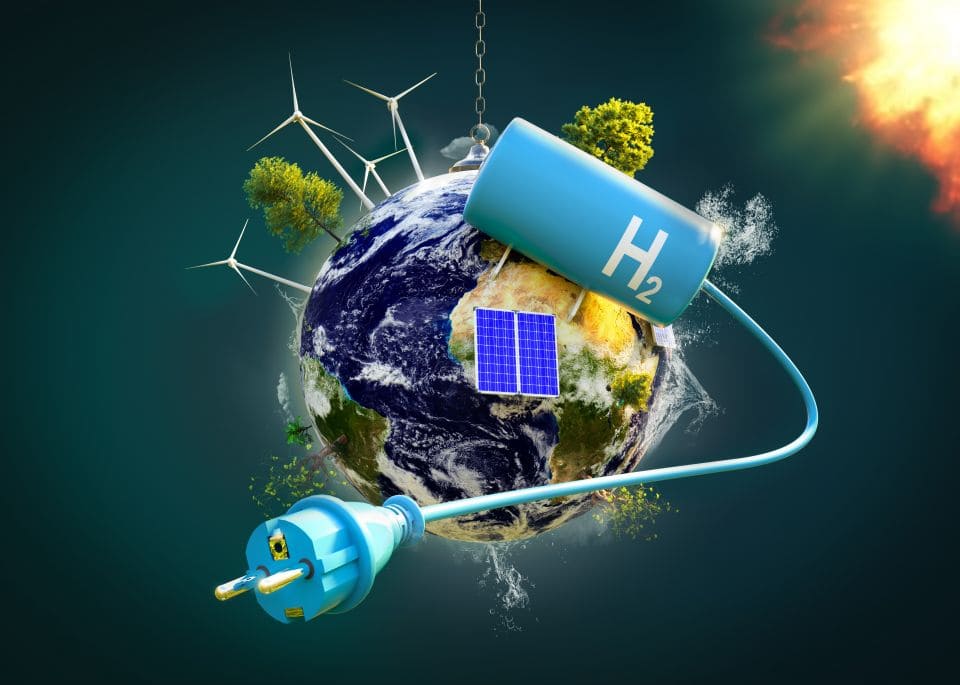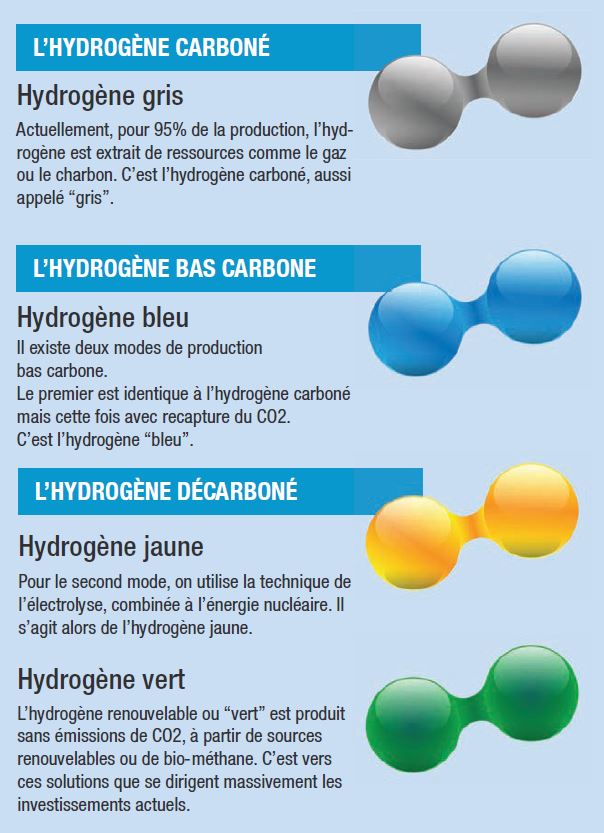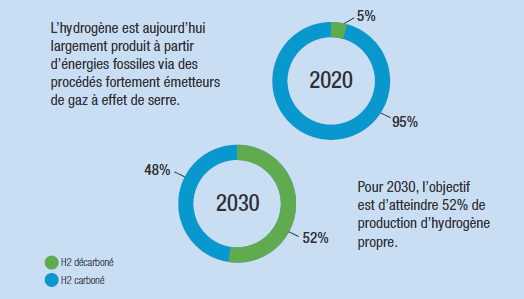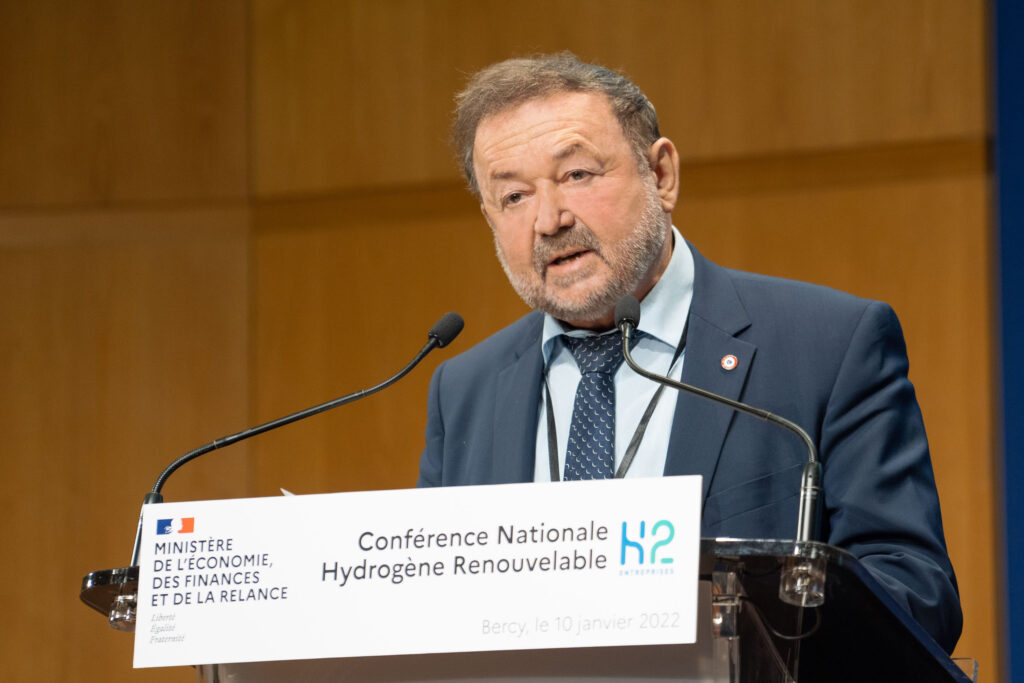
Renewable hydrogen


Not a week goes by without talk of this small molecule, which is the talk of the town in scientific columns, mobility webinars, economic debates and political forums. Of course, it is the most abundant element in the universe and is being promoted as the energy carrier of the future and the savior of the decarbonization of heavy mobility! But this coming golden age of hydrogen has already made several attempts. Will this time be the right one?
It’s cyclical, in 1970, 1990, and 2000, hydrogen appeared in an attempt to bring about a decarbonation solution to our environmental problems. But in each attempt, this energy vector did not obtain the expected success. 20 years later, H2 solutions are being brought out of the box, and this time the change of scale is there: the hydrogen sector is finally taking its full place in the European energy strategy. The deputy managing director of Energy Observer [1], has also underlined on this subject “I have been hearing about this solution for more than thirty years, but it is finally becoming a reality in our daily life”.
[1] Energy Observer is a hydrogen-powered ship that has been sailing the seas since 2017 to test new clean energy technologies.
Thus in France, the first major change took place in 2018, when Nicolas Hulot, then Minister of Ecological Transition and Solidarity, had launched a 100 million euro Hydrogen plan. A first good news that gave hope to the sector, but considered a drop in the bucket for the professionals of the sector. 2020 will be the year of the great change where all planets seem to align. The European Union publishes its Hydrogen Strategy, while France launches its first major financial announcement: a €7.2 billion envelope dedicated to the hydrogen industry. It will be completed in 2021 by €1.9 billion within the framework of France 2030. These two announcements considerably boost the French industry, which is becoming structured and attracting new players. France Hydrogène (formerly Afhypac) has also seen its membership soar. From about 100 members in 2018, they are now more than 400. For Philippe Boucly, the president of France Hydrogen, “The launch of the French Strategy heralds a new era for hydrogen in France and Europe. Hydrogen will become a strategic industry for our country.”

And that’s precisely why this time it’s the right one! Hydrogen is not only the solution to our energy problems, it is also and above all a promise of growth and sovereignty on which France intends to surf to give back to its country all the industrial wealth it needs.
Last September, France launched a national strategy for the development of low-carbon hydrogen. A total budget of 7 billion euros will be devoted to it until 2030. This hydrogen strategy has three objectives
– the decarbonization of industry
– the development of hydrogen-powered heavy mobility
– supporting innovation, research and skills development.
This strategy is totally oriented towards decarbonized hydrogen, which is one of the solutions for decarbonizing industry and transport. Decarbonated hydrogen comes from a water electrolysis process, thus emitting little CO2, compared to hydrogen produced from fossil fuels (coal, natural gas, oil) whose manufacturing processes usually generate greenhouse gas emissions.
In order to implement this strategy, the National Hydrogen Council (CNH) was created on January 11, 2021 by 3 ministers: Barbara Pompili, Minister of Ecological Transition, Bruno Le Maire, Minister of Economy, Finance and Recovery, Frédérique Vidal, Minister of Higher Education, Research and Innovation, and Agnès Pannier-Runacher, Minister Delegate for Industry.
The role of this council is to structure the exchanges between the State and the stakeholders of the national strategy for the development of low-carbon hydrogen. It thus contributes to the development of this new competitive French low-carbon hydrogen industry.
The CNH, co-chaired by Patrick Koller and Benoit Potier, brings together representatives of the various stakeholders:
– Industrial companies producing energy
– Representative professional federations, organizations and associations (France Industrie, France Hydrogène, Syntec Ingénierie)
– Energy and mobility industries (Chemicals and Materials, Construction Industries, Mining and Metallurgy, Aeronautics, Marine Industries, Automotive and Rail)
– Atomic Energy and Alternative Energies Commission (CEA)
The first meeting of the National Hydrogen Council was held on February 28, 2021 at Safra and provided an initial assessment of the strategy’s implementation.


286 million euros
have already been committed since the beginning of 2021, representing a total investment of 952 million euros
1.7 million euros
will also be committed by the end of 2021
81%
France is committed to reducing its CO2 emissions by 81% by 2050 compared to 2015. The decarbonization of industry is a major lever for achieving this national decarbonization objective.

Michel Delpon, President of the Hydrogen Study Group at the French National Assembly, is convinced of the relevance of green hydrogen to move towards a decarbonized mobility. In his recent publication “Renewable hydrogen, the green energy of the next world”, he explains that “the deployment of hydrogen is based on […] the massification of its production and use, which will give the greatest number […] access to an abundant and ecological energy and thus contribute to the development of a responsible and sustainable progress”.
In a world facing ever more pressing environmental issues, transition
“A stone has no hope of being anything other than
The fourth leading cause of mortality in the world, air